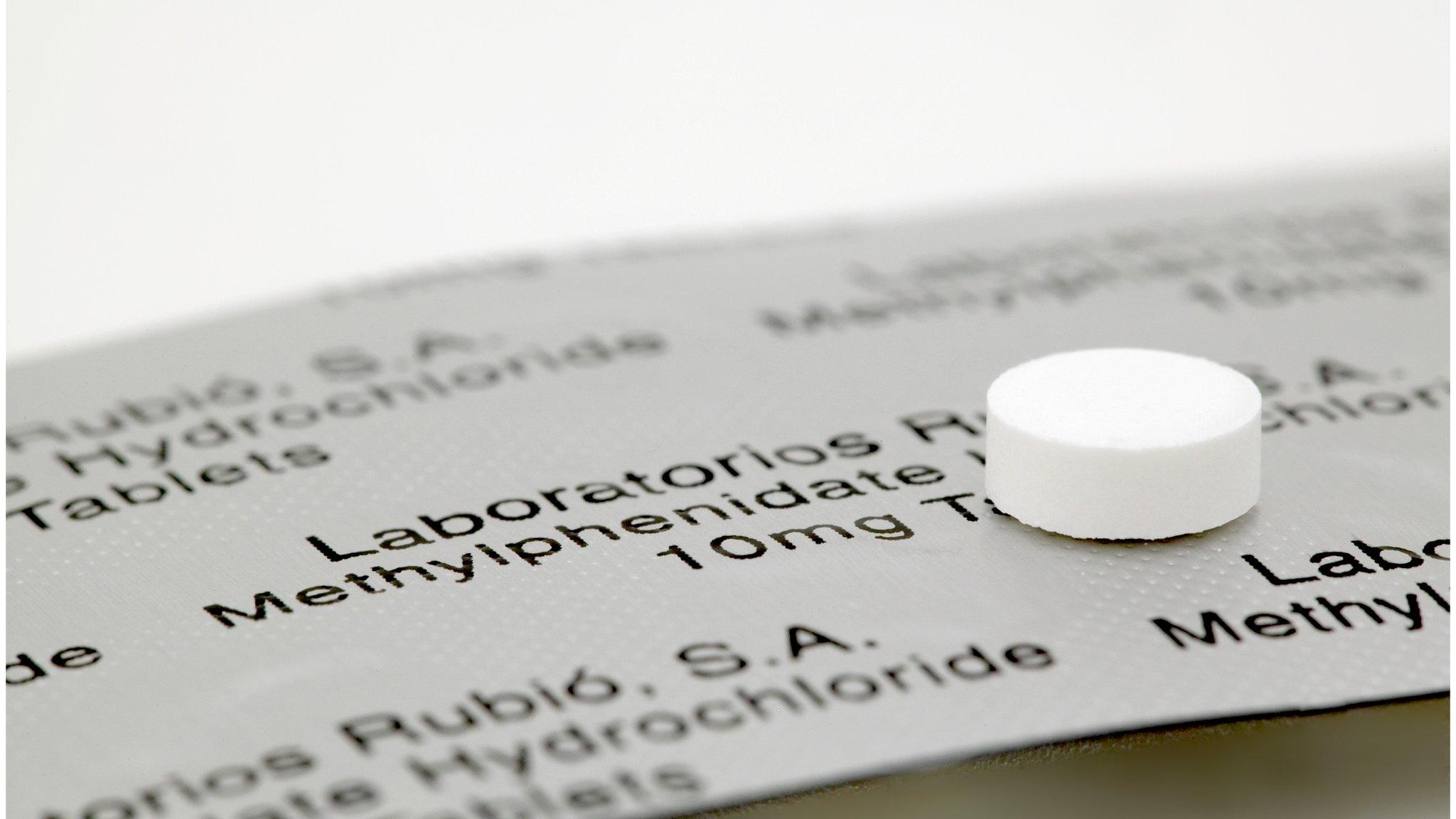ADHD testing after 'impulsive crime' arrests should be mandatory, MPs say
- Published

The cost of caring for inmates with ADHD in the UK has been estimated at £11.7m
People aged between 12 and 20 arrested for "impulsive crimes" should receive mandatory testing for attention deficit hyperactivity disorder, MPs have said.
The All Party Parliamentary Group for ADHD say compulsory testing should also be introduced for anyone sent to jail.
Alex Sobel MP said early diagnosis was key to stopping people reoffending.
A Ministry of Justice spokesperson said all new prisoners underwent three assessments within their first week during which ADHD may be detected.

Alex Sobel MP is the vice chair of the All Party Parliamentary Group for ADHD
Mr Sobel, Labour MP for Leeds North West and the vice chair of the group, said teenagers arrested for offences such as "fighting, bike theft and shoplifting" should be screened.
"The earlier we pick it up the better it is for the individual, the taxpayers and ability for them not to move on into the criminal justice system," he said.
"If ADHD goes undiagnosed then reoffending rates are around 32%, studies show - a third of people with ADHD are going to reoffend because they haven't been diagnosed and no action has been taken."
Researchers have previously found people with the condition were more likely to commit crime - 37% of men and 15% of women - than adults without the condition - 9% of men and 2% of women.
And, according to charity ADHD Action an estimated 30% of adult prisoners have the condition.
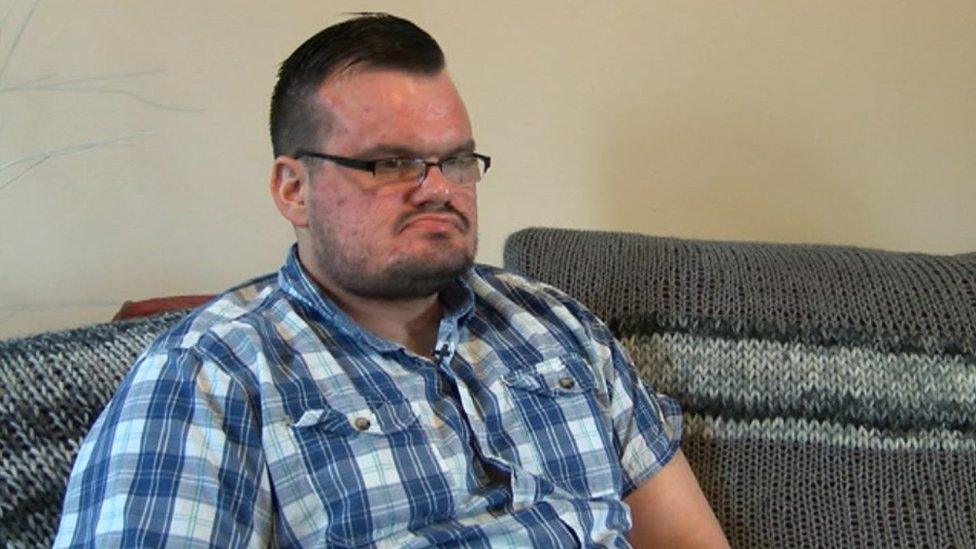
Former prisoner David Allen was diagnosed with ADHD when he was 33
David Allen, 34, from Wombwell, near Barnsley, was 18 when he was first sent to prison and was jailed five more times before he turned 23.
He was diagnosed with ADHD when he was 33 and said he believed if his condition had been spotted sooner his life may have been very different.
"I look back and think it's such a shame I wasn't treated because that would never have happened," he said.
"There's thousands and thousands of people like me both in prison and outside that are exactly the same. Locked up basically for being ill, rather than committing a crime knowingly."

What is ADHD?
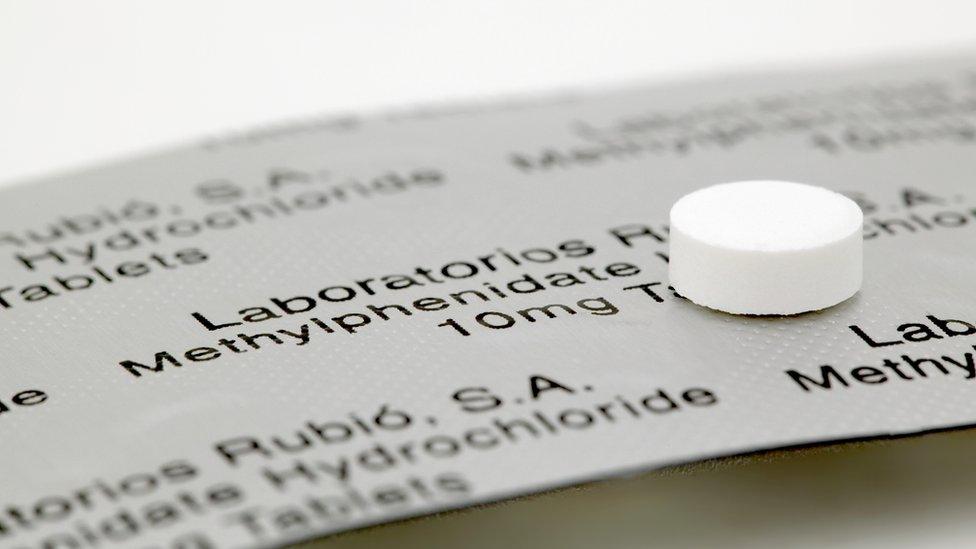
Symptoms include inattentiveness, hyperactivity, impulsiveness, anxiety and sleep problems
ADHD was first recognised as a valid condition in the UK in 2000 but not officially recognised as an adult condition until 2008
In 1990 only 40 children in the UK were on medical treatment, which means many adults have not been treated or managed properly
At least a third of these are likely to have significant ongoing problems as adults
ADHD affects 5% of children and 3% of adults (1.5 million) in the UK, making it the most common behavioural disorder in the country
About a third of children are diagnosed, while for adults it is about 7-8%
Source: ADHD Action

Calls for screening have been backed by the Royal College of Psychiatrists and research has found the estimated cost of caring for inmates with ADHD in the UK was £11.7m, external.
Dr Louise Theodosiou said screening could "potentially help more children to get the treatment they need for their illness".
The Ministry of Justice said a trial was currently under way at Isis Prison and Young Offenders Institution, in south-east London, investigating "how to deliver cost-effective and safe treatments to adult prisoners with ADHD".
The Home Office said anyone taken in to custody must have their welfare taken in to account and laws were in place to safeguard vulnerable people.
- Published20 February 2019
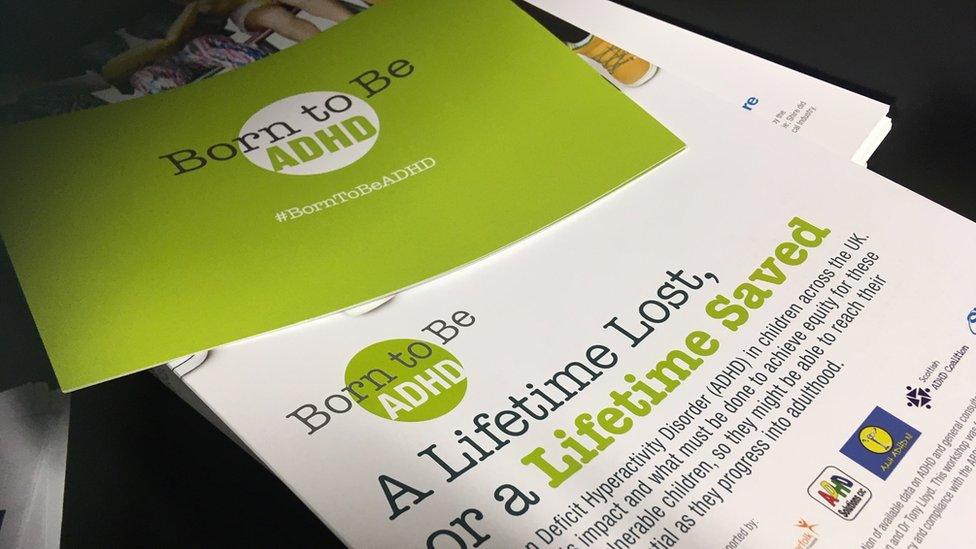
- Published4 January 2019
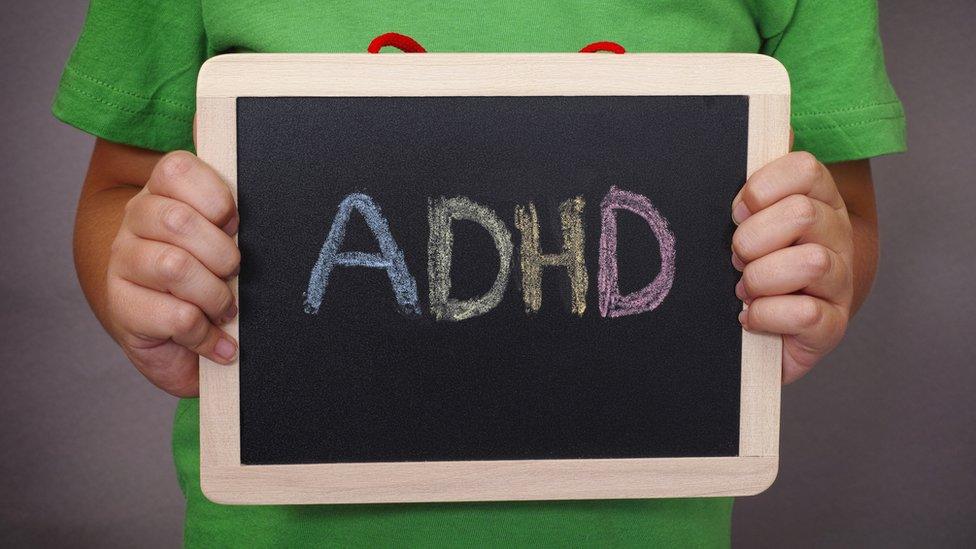
- Published26 July 2018
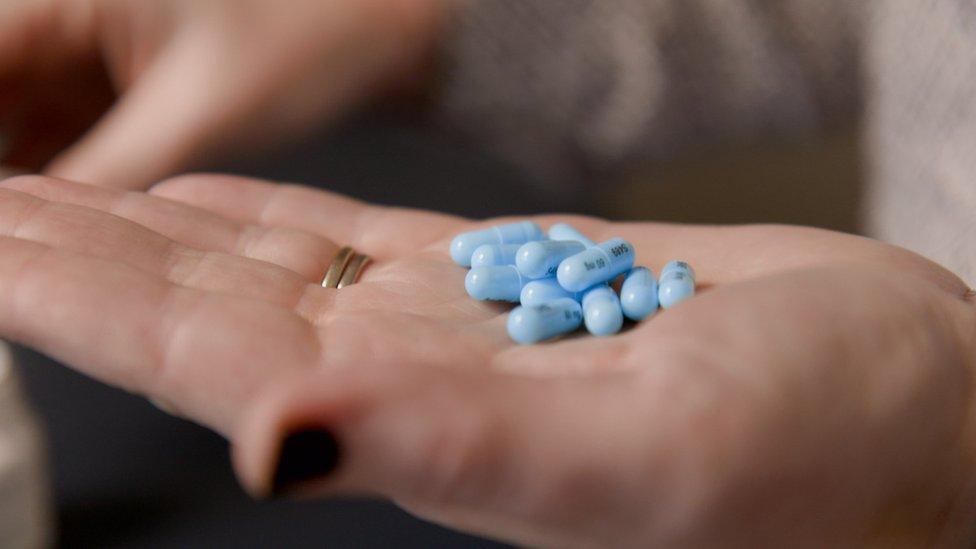
- Published28 March 2018

- Published22 November 2012
